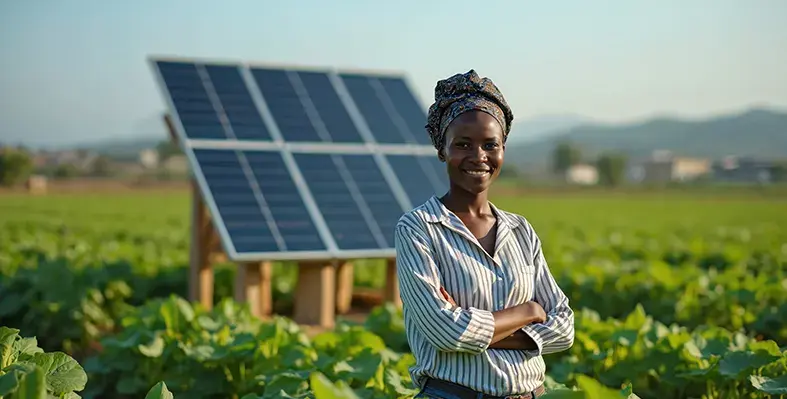Africa’s agricultural sector, long seen as an untapped resource, is emerging as one of the most critical levers for achieving global sustainable development
Since the United Nations launched its Sustainable Development Goals (SDGs) in 2015, progress has been underwhelming. Only 12% of the 169 targets are on track, while more than a third have stalled or even regressed. Yet amidst this global slowdown, one truth stands out clearly: investing in African agriculture could change the game.
Farming is the backbone of life across the African continent. It provides livelihoods for nearly 70% of the population, most of whom are women, and contributes around 30% to the continent’s GDP. However, this vital sector remains deeply underfinanced and underutilised. Cereal production in sub-Saharan Africa has increased by 37% over the past decade, not due to rising efficiency, but through the simple expansion of farmland. Yields per hectare remain approximately 60% below the global average, and just 5% of African farmland is irrigated. Mechanisation and access to inputs are limited, leaving millions of smallholder farmers at a disadvantage.
The result is a growing reliance on imported food. From 2015 to 2017, African nations spent an average of US$27bn a year on imported cereals. That number could balloon to US$110 billion by 2030 if investment remains stagnant. The implications stretch far beyond the continent. As the global population climbs and supply chains grow more fragile, Africa’s ability to produce food locally will be essential for global food security and price stability.
And yet, investment levels remain dismal. In 2022, African agriculture received just $49 billion from all sources—public, private, and development finance combined. That’s only about US$140 per farmer annually, compared to a global average of US$1,300. Agriculture currently draws less than 4% of all investment on the continent, and only 3% of global development funding. By comparison, the Africa Food Systems Forum estimates that US$200bn is needed to build a sustainable agrifood system capable of closing the development gap.
With 250 million Africans working in agriculture, the sector offers one of the most direct and powerful routes to inclusive economic growth. Investment in agriculture has been shown to be two to four times more effective at increasing incomes than investment in any other sector. Moreover, climate-smart practices could make African farms more resilient to climate shocks, enhance food security, and help preserve forests by increasing yields without the need for deforestation. African land also holds significant potential for carbon sequestration, aligning agricultural development with climate action.
Despite these opportunities, public spending on agriculture across African governments is far below target. In 2022, only US$16bn about 3% of public expenditure—was directed toward farming, falling short of the African Union’s recommendation of 10%. Only Malawi and Ethiopia have consistently met that threshold since 2008. Private sector investment is similarly lacking, with just 3% of Africa’s private funding going into agriculture, far below the global average of 10%.
To reverse this, investment strategies must be sharper and more targeted. Development agencies have a pivotal role to play in unlocking further funding through catalytic capital, risk-sharing mechanisms, and blended finance models that draw in private investors. Governments need to focus on building the foundations—improving infrastructure, cutting red tape, and creating a business environment that welcomes agricultural investment. And the private sector must seize the commercial opportunity by scaling innovative financing models, investing in local supply chains, and supporting agri-tech and entrepreneurship.
Efforts are already underway. The Agricultural Transitions Lab for African Solutions (ATLAS), launched by the Paris Peace Forum, is tracking progress and aligning funders across sectors. Its “2x30 Challenge” aims to double the current investment in African agriculture to US$98bn by 2030. The potential pay-off is enormous: food security, stronger rural economies, greater climate resilience, and sustainable growth not only for Africa, but for the world.
African agriculture doesn’t just need more investment—it deserves it. With the right support, it can feed a growing population, lift millions out of poverty, reduce reliance on imports, and transform global food systems. The seeds of change are already in the soil. It’s time we helped them grow.





